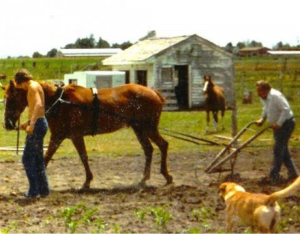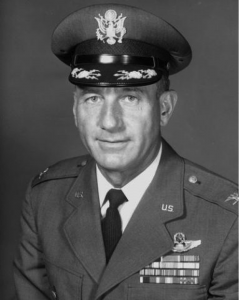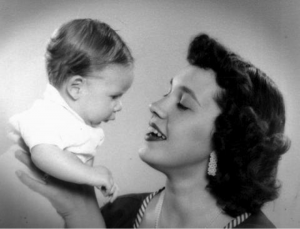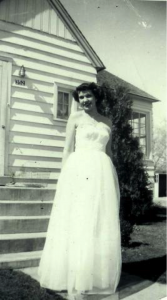To Boomers and Millennials from a former Latch-Key Kid

Submitted by admin on Thu, 05/29/2014 – 19:49
An open Email
To: Baby Boomers
From: Rhonda Lauritzen, occasional blogger and former latch-key-kid
Subject: Generational misunderstandings and co-dependency
Date: 2014
The purpose of this email is to provide information that you might find helpful, and to make a few recommendations so Boomers, Gen-X, and Millennials can work together in a spirit of mutual collaboration.
As background, the sender of this email is a member of the small and sometimes-maligned Generation X, sandwiched between the two enormous cohorts that are the primary subject here. Given that we are all now side-by-side at work, it seemed timely to offer a third-party perspective.
First, it has come to my attention that several stereotypes about the Millennial generation have been put forth. The following stereotypes require some clarification:
· Trophy generation
· Dependent on technology
· Still living at home
In conversations with this generation, they wish to clear up a few misunderstandings about the above stereotypes and to ask your cooperation in refraining from perpetuating them. First, they are fully aware that there are winners and losers in the world. These young people are quite bright, ambitious, and capable of seeing the world for what it is—competitive as well as collaborative. This is sometimes in spite of, and sometimes resulting from their upbringing. Further, they wish for the record to reflect that they did not create the rules of the games in which everyone received a trophy. You did. They were just the kids that went from one activity to the next.
Second, consider withholding criticism regarding Millennial use of technology lest they become unwilling to fix your computer. While they are, indeed, well-versed in the use of technology, they do not see themselves dependent. Your two generations may simply agree to disagree on this point; nevertheless, respect in your approach will go a long way to maintaining a mutually-beneficial relationship. Remember this when you call upon their skills.
Third, if you have a millennial over the age of twenty-five living in your basement, the next paragraphs may be of interest. Before expressing frustration about this situation, please understand a few realities. This generation came of age during the biggest downturn since the Great Depression. Jobs that were readily available to you at their age evaporated before their eyes. Further, while you may have been working at their age, you urged them to postpone this in favor of a college degree—any degree—and at any cost. Now laden with thousands in debt, they find that piece of paper, simply that. Paper. What they need now is good old-fashioned work experience. This probably means going to work in entry-level positions. Neither you nor they are very happy about this, but before you complain, go have a chat with your parents or grandparents. Ask them—the children of the Great Depression and WWII—about work, sacrifice, and unfairness.
Next, please realize that this college degree situation is not their fault. They were simply meeting your expectations to get an education. Now many of them feel they were sold a very expensive bill of goods. This may not be far from the truth. What to do now? As you make hiring decisions, please take a chance on these young people and help them gain the real-world experience they so desperately need. Mentor them. Encourage them to go get some actual skills, perhaps a certificate in a hands-on occupation. Have a frank conversation about taking job at the bottom so they can work their way up. Finally, please do not be disappointed if your son or daughter takes a position that is less than you had hoped. They need to start somewhere.
With that said, the recession is over and it really is time for them to launch. Before you approach them with ultimatums, however, please take a moment to reflect on your role in the current situation. Has anything in your own behavior enabled this outcome? Is there a possibility that you and your children are engaged in a co-dependency that older generations might have viewed as, perhaps, unhealthy? The upside is that you have fostered a genuinely close relationship with your children. On the other hand, you may need to explain that it is okay for them to leave now. You will somehow manage without them. Baby steps.
There is another topic they want to bring up but are not sure if it is okay yet. Namely, they genuinely do not understand your obsession with diversity. To them, the Civil Rights Movement is a distant event in history books. While you continue to debate issues of race, Gay marriage, and gender equality, they are quietly living it. What is all the fuss, they say? They view your hostility and rhetoric as perpetuating old divisions. Time to move on, they say. They may have a point.
Finally, it has come to my attention that several behaviors have occurred in the past. This memorandum hereby informs you that the following are unacceptable and will not be tolerated:
· Hanging around your son or daughter’s college campus.
· Calling your son or daughter’s employer with questions or concerns about their performance.
· Blaming their generation for circumstances over which they had no control and that you probably created.
Thank you for your consideration of these items. If you have any questions, concerns or feedback about this, please do not call another meeting. Please. Email would be much more efficient.
P.S. As one aside, please take note of the complete sentences and coherent organization of this message. If you engage in criticism of younger colleagues and their lack of grammatical acuity, kindly refrain from including members of Generation X. While we are well-versed in texting and social media, we have worked hard to educate ourselves—both in school and the workplace. We understand the finer points of both written and verbal communication. Thank you.
________
To further the spirit of useful but unsolicited advice, I also offer this text to my younger friends:
Sup millenials
Good news: Recession over. Yay!
(Not 2 B Debbie Downer, but it prob. wont B the last. FYI, this is downturn #3 for GenX)
What now? Time 2 get a job.
Serious, sorry 2 hear UR degree is only paper.
The debt sux. But what ya gonna do?
Prob need 2 learn a skill.
And by skill I mean…U got 5 fingers & super smart brain. Not just thumbs.
These R gr8 assets so use em.
About that job. U gotta start @ bottom. CEO by 30? Maybe.
Oh, and bro. Stop texting UR parents all day. #creepy.
About that…UR mom called. #AwkwardMoment
She said totally OK if U move out now. She B OK.
TBH, U so smart. Can do anything. Serious. U will B amazing!
Go get ‘em.
Rhonda Lauritzen is an occasional blogger, author of the book Every Essential Element and works in post-secondary technical education.
This blog post was inspired by a presentation by Diane Thielfoldt, Co-founder The Learning Caféwww.thelearningcafe.net.
Diane specializes in resolving issues related to the four-generation workforce. For fourteen years, she has learned from the age-diverse workforce by engaging in primary research, analyzing secondary research, capturing trends, teaching in organizations and observing workplace behavior – to build a strong knowledge base of the four generations’ commonalities and differences. She has helped organizations in many industries create strategies to manage their four-generation workforces and bridge the generation gap at work. Her presentations, training materials and workshops have provoked thought, changed behavior and educated thousands of managers and employees on the importance of flexing to meet the needs of a changing workforce – and practical ways to do so.







